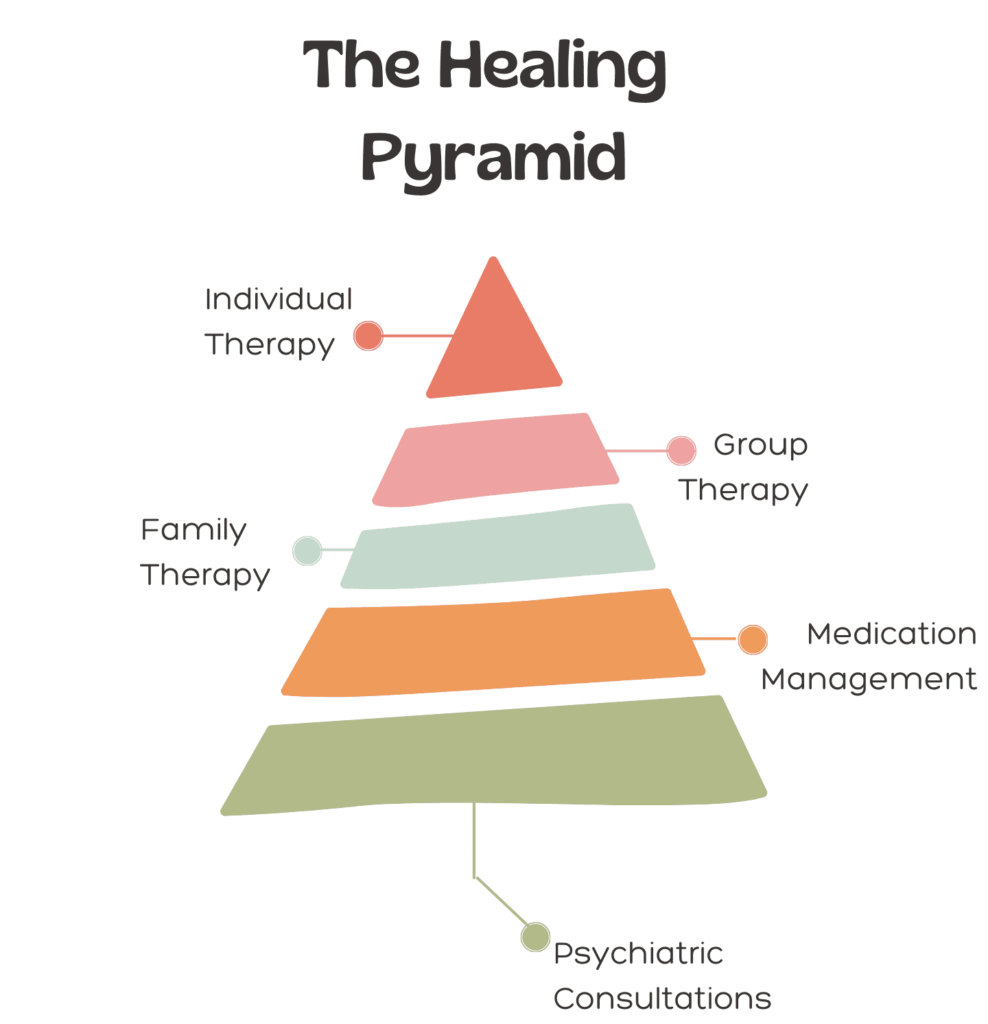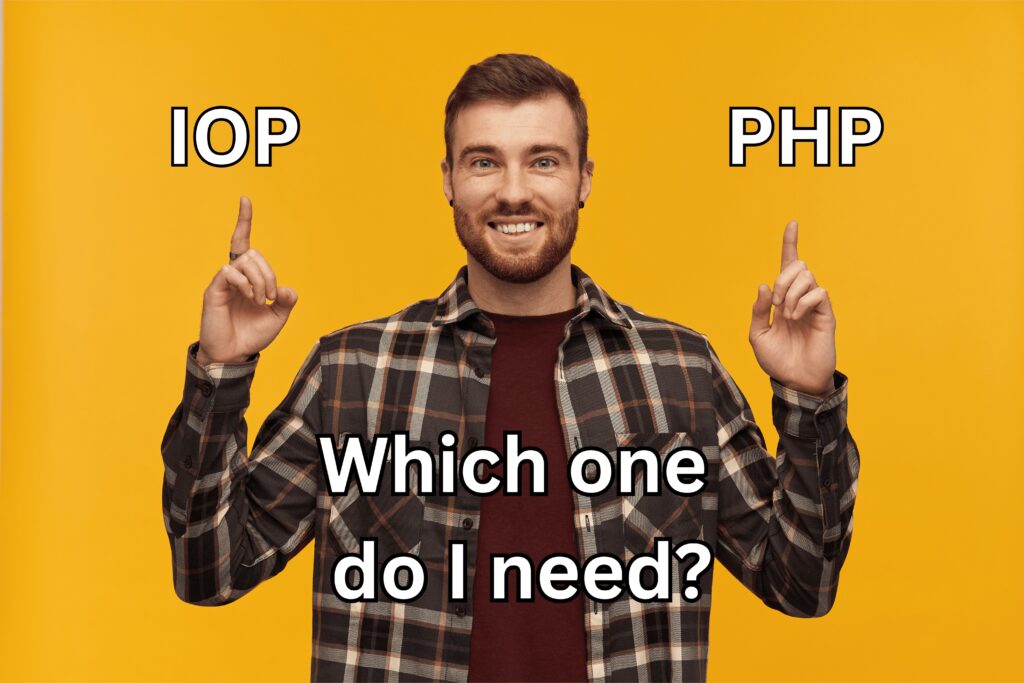A Partial Hospitalization Program (PHP) is a mental health treatment option that offers intensive therapy while allowing patients to live at home.
It is designed for individuals who need more support than traditional outpatient care provides but do not require full hospitalization.
This guide will help you understand PHP mental health programs, their benefits, and how they can help manage significant mental health issues.
Key Takeaways
- Intensive Outpatient Treatment: PHP offers structured, intensive care for significant psychiatric issues, providing short-term stabilization and recovery initiation while allowing patients to return home in the evenings.
- Comprehensive Therapies: PHPs include individual and group therapy, medication management, psychoeducation, and skill-building activities tailored to each patient’s needs.
Transitional Care: PHP bridges the gap between inpatient hospitalization and traditional outpatient care, ideal for individuals transitioning from higher levels of care or those needing more structured support without 24/7 supervision.
(keep scrolling for more information)
What is a Partial Hospitalization Program (PHP)?
A Partial Hospitalization Program (PHP) acts as a transitional stage between traditional outpatient services and inpatient hospitalization. It is designed for individuals dealing with significant psychiatric issues, mood disorders, anxiety, and post-traumatic stress disorder.
PHP provides an intensive mental health treatment focused on serious mental health issues, operating on a structured schedule similar to a full-time job, with patients attending several hours per day, five to seven days a week.
Services Offered in PHP
PHPs provide a comprehensive range of mental health services, including:
- Individual and Group Therapy
- Medication Management
- Psychoeducation
- Skill-Building Activities
This multidisciplinary approach ensures that patients receive holistic care tailored to their specific needs, making PHP an effective treatment option for those requiring more support than traditional outpatient programs but not needing constant supervision.
PHP vs. Inpatient Hospitalization
Unlike inpatient hospitalization, PHP enables patients to uphold their daily responsibilities alongside intensive mental health treatment. This program is less restrictive, allowing individuals to return home in the evenings, fostering a sense of normalcy and community integration.
The goal is to provide a comprehensive treatment plan that addresses the unique needs of each patient, offering several hours of therapy and support each week.
Key Features of PHP for Mental Health
Comprehensive Mental Health Services
PHPs are designed to provide comprehensive mental health services during the day, allowing individuals to return home at night, balancing intensive care with community integration.
This structure serves as an alternative to inpatient hospitalization for those needing significant therapeutic support but not requiring round-the-clock supervision.
The program’s schedule typically mirrors that of a full-time job, operating for six or more hours per day, five days a week.
Structured Therapeutic Services
PHPs offer various therapeutic services, including:
- Individual and Group Therapy
- Medication Management
- Psychoeducation
- Skill-Building Activities
The program’s duration can vary depending on the individual’s progress and treatment goals, ensuring that each patient’s unique needs are met.
Multidisciplinary Clinical Team
PHPs are staffed by a multidisciplinary clinical team, including psychiatrists, psychologists, social workers, and nurses, who work collaboratively to provide world-class care.
The variety of therapeutic modalities ensures that patients receive comprehensive treatment for their mental health concerns..

Who Can Benefit from PHP?
Suitable Candidates
PHP programs are particularly advantageous for individuals diagnosed with anxiety, depression, and mood disorders requiring a more organized support system than traditional outpatient services offer.
These programs are suitable for patients who need a higher level of care but do not require 24/7 inpatient supervision. PHPs are ideal for individuals who can commit to a significant time investment in their recovery, often requiring participants to take time off work or school to focus on their mental health.
Transitional Support
PHP is an excellent option for those transitioning from intensive inpatient care to lower-level outpatient services. It provides a structured and supportive environment that helps stabilize mental health conditions and prepares individuals for more independent living.
Types of Therapies in PHP
Customized Therapy Sessions
PHPs provide a broad range of therapy sessions, customized to cater to the diverse requirements of their patients. These therapies aim to address different aspects of mental health, providing a holistic approach to treatment. The types of therapies available in PHP include:
- Individual Therapy
- Group Therapy
- Cognitive Behavioral Therapy (CBT)
- Dialectical Behavior Therapy (DBT)
- Family Therapy
Cognitive Behavioral Therapy (CBT)
Cognitive Behavioral Therapy (CBT) in PHP settings focuses on addressing and modifying maladaptive thought patterns to foster healthier cognitive behaviors. This therapy is particularly effective in managing conditions such as depression, anxiety, and PTSD. It helps patients by:
- Identifying and Changing Negative Thought Patterns
- Developing Practical Coping Strategies
- Managing Stress
- Improving Problem-Solving Skills
Dialectical Behavior Therapy (DBT)
Dialectical Behavior Therapy (DBT) in PHPs combines cognitive-behavioral techniques with concepts of mindfulness and acceptance to help patients develop skills to manage emotions and improve relationships. DBT sessions often include components such as:
- Mindfulness
- Distress Tolerance
- Emotion Regulation
- Interpersonal Effectiveness
Group Therapy
Group therapy in PHPs provides a supportive environment where individuals can share experiences and learn from others facing similar challenges. The benefits of group therapy include:
- Connecting with Peers
- Reinforcing Skills Learned in Individual Therapy
- Practicing New Behaviors in a Safe Setting
Family Therapy
Family therapy in PHPs is crucial for addressing relational dynamics and providing support to both patients and their families. These sessions aim to:
- Improve Communication
- Resolve Conflicts
- Help Families Understand Mental Health Conditions Better

Goals and Objectives of PHP
Stabilizing Mental Health
The primary aim of PHP treatment is to stabilize the patient’s mental health conditions and aid them in effective symptom management. This includes developing coping skills to handle triggers and stressors, improving problem-solving abilities, and enhancing emotional regulation techniques.
Transition Support
Another key objective of PHP is to provide transition support from higher levels of care to community-based support. This includes preparing patients for more independent living by equipping them with the skills and resources needed to manage their mental health outside the program.
Benefits of PHP for Mental Health
Individualized Treatment Plans
One of the primary advantages of PHP is the individualized treatment plans tailored to meet each patient’s unique needs and goals. This personalized approach ensures that patients receive the specific support and therapy required for their recovery.
Supportive Environment
The supportive environment of PHP helps patients connect with others facing similar challenges, reducing feelings of isolation and fostering a sense of community. This environment is crucial for recovery, as it allows individuals to share experiences, receive encouragement, and develop meaningful relationships.
Comparing PHP with IOP and Inpatient Programs
PHP vs. IOP
PHP provides a higher level of support and structure compared to Intensive Outpatient Programs (IOP). PHP is suitable for those needing significant therapeutic support but not requiring 24-hour supervision, whereas IOP offers less intensive care, ideal for individuals who are stable enough to manage daily life without daily supervision but still need structured support.
PHP vs. Inpatient Programs
PHP is often used as a step-down option for individuals transitioning from inpatient hospitalization to less intensive levels of care. Inpatient programs provide 24/7 supervision and support, making them suitable for individuals requiring constant care.
Understanding these differences helps individuals and their families choose the most appropriate level of care based on their specific needs and circumstances.
Medication Management in PHP
Supervised Medication Management
Medication management in PHP involves:
- Monitoring Medication Effectiveness
- Adjusting Dosages as Necessary
- Individualized Medication Plans
- Supervision by Medical Professionals
Effective medication management helps stabilize mental health symptoms, allowing patients to engage more fully in therapeutic activities and daily life.

How to Choose the Right PHP for You
Factors to Consider
Selecting the appropriate PHP entails considering multiple factors, such as the intensity of your mental health condition and your precise treatment objectives.
More intensive options may be necessary for more severe cases, so it’s crucial to evaluate the level of care provided by the PHP.
Additionally, personal circumstances such as work obligations and family responsibilities should be taken into account when selecting a PHP.
Seeking Professional Guidance
Consulting with mental health professionals can provide invaluable guidance tailored to your specific needs. Balancing these factors will help ensure that you choose a program that supports your recovery journey effectively.
Asana Recovery’s PHP in Orange County
Structured Daytime Care
Offering structured daytime care, Asana Recovery’s PHP in Orange County facilitates participants to return home every evening. This program is ideal for medically stable individuals transitioning from inpatient care or those needing more support than standard outpatient services.
The commitment typically involves six hours per day, five days per week, providing intensive therapeutic services without the need for overnight hospitalization. Also, explore our Intensive Outpatient Program (IOP) in Orange County for a less intensive level of care.
Evidence-Based Therapeutic Modalities
The program at Asana Recovery offers substance abuse treatment employing evidence-based therapeutic modalities such as Cognitive Behavioral Therapy (CBT) and Dialectical Behavior Therapy (DBT). Treatment plans are personalized, combining individual therapy, group therapy, family therapy, and psychiatric consultations.
Comprehensive Approach
Additionally, Asana Recovery’s PHP includes:
- Close Monitoring and Regular Adjustment of Medications
- Group Therapy for Peer Support
- Family Therapy for Conflict Resolution and Communication Improvement
- Initial Assessment for Personalized Treatment Plan

Summary
Navigating the landscape of mental health treatment can be challenging, but understanding the options available can make a significant difference. Partial Hospitalization Programs (PHP) offer a structured, intensive outpatient treatment that provides a higher level of care than traditional outpatient services while allowing individuals to return home each evening.
PHPs are designed for short-term stabilization and treatment, addressing significant psychiatric issues, mood disorders, anxiety, and post-traumatic stress disorder.
By exploring the key features, types of therapies, and benefits of PHP, as well as comparing it with Intensive Outpatient Programs (IOP) and inpatient programs, individuals can make informed decisions about their mental health care.
Whether transitioning from inpatient care or needing more support than outpatient services, PHP offers a comprehensive and supportive environment for recovery. Choosing the right PHP, guided by professional advice and personal circumstances, can pave the way for a successful treatment journey.
Frequently Asked Questions
What is a Partial Hospitalization Program (PHP)?
A Partial Hospitalization Program (PHP) is an intensive outpatient treatment for individuals with serious mental health conditions, offering a higher level of care than traditional outpatient services without the restrictiveness of inpatient hospitalization.
Who can benefit from PHP?
PHP programs are beneficial for individuals diagnosed with anxiety, depression, and mood disorders who need more structured support than outpatient services, as well as those transitioning from inpatient care or experiencing a deterioration in mental health needing stabilization without full hospitalization.
What types of therapies are offered in PHP?
In PHP, you can access therapies such as Cognitive Behavioral Therapy (CBT), Dialectical Behavior Therapy (DBT), group therapy, and family therapy, which collectively provide a holistic approach to mental health treatment.
How is medication managed in PHP?
In PHP, medication management involves monitoring medication effectiveness and adjusting dosages as needed, overseen by a team of medical professionals to ensure appropriate treatment and address any side effects promptly.
How do I choose the right PHP for me?
To choose the right PHP for you, consider your mental health condition, treatment goals, personal circumstances, and seek guidance from mental health professionals for tailored advice.





